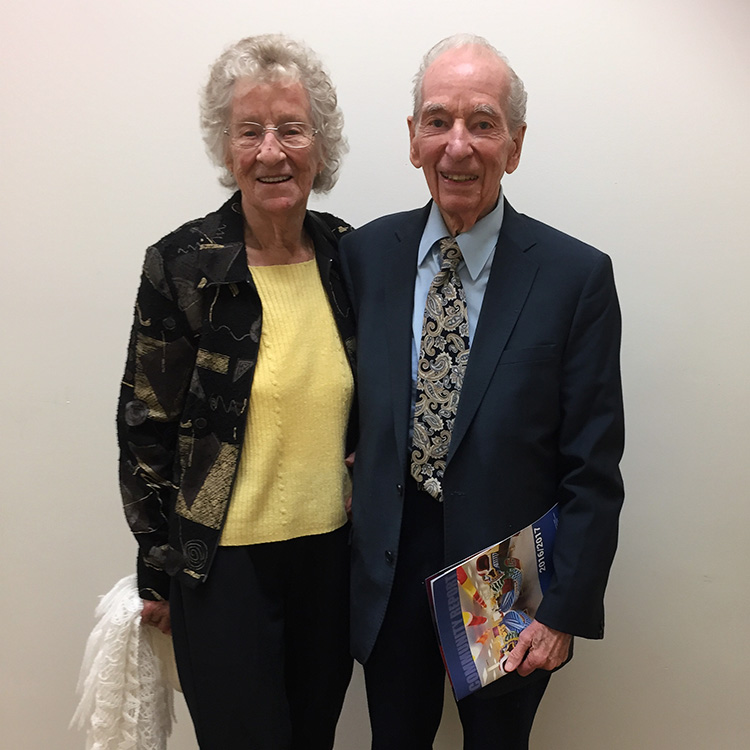Al Neale and Beryl Herdan couldn’t think of a better way to express their gratitude. Their endowment funds to the Canadian Mental Health Association (CHMA) were established for two goals:
- To support operational costs of the organization and;
- To support families who have a loved one suffering with mental health issues.
Beryl has a daughter and grandson who live day by day with bipolar disorder, and Al has an adopted daughter who is the victim of fetal alcohol syndrome. The support they received over the years from CHMA gave them strategies to help their relationship with their children.
“We got to know as much as we could about mental health to help us understand it,” says Al.
In particular, Donna Miller, before she retired as Family Support Coordinator, was very instrumental in helping them with her powerful workshops.
“Donna left such an impression on me,” says Al. “She would give us points to let us understand where they’re coming from and how to handle situations without agitating it even more.”
For Beryl, the CHMA helped her see beyond her daughter’s mental illness and appreciate who she is as a person and to view things from her daughter’s point of view.
“I just loved that girl and I could see the positive and the creative. They helped me to understand the illness. The workshops were so helpful.”
Their effort to connect with loved ones, to learn about mental illness and how to deal with it was a bond that strengthened Al’s and Beryl’s relationship. Both had lost their spouses and moved to the Shuswap in the late 70s. Al’s wife had died a decade before and he was a loner until he moved to Cedar Heights.
“In Calgary I was always in a shell. When I came out here and met people in Cedar Heights it was like a big family and there were potlucks, lawn bowling, and square dancing.”
Beryl had moved to Salmon Arm where she met her second husband, Rudi. After he passed away Beryl met Al. Besides seeing each other at CHMA, they shared a love of animals and became active in fundraising for the local SPCA. Soon they were enjoying each other’s company and becoming very engaged in the community: square dancing, singing, acting, attending the local story-telling group, and the historical society.
“To put back to the community is so important. What you put into it is what you get back,” says Beryl. “It benefits everyone.”
For Beryl and Al, knowing their gift will help other families live life to the fullest is a legacy they’re proud to leave. “I think it’s just marvelous. The money gains interest and they can spend it on so much other stuff.”
As the CHMA gave them the tools they needed, so their gift will help other families flourish regardless of mental health problems.
“I can sympathize with the person who is an alcoholic or a person with mental health issues. They don’t get up in the morning and say, ‘I’m going to be an alcoholic’ or ‘I’m going to be a person with mental health issues today,’” says Beryl. “We can’t do anything but learn more about it and be compassionate.”


